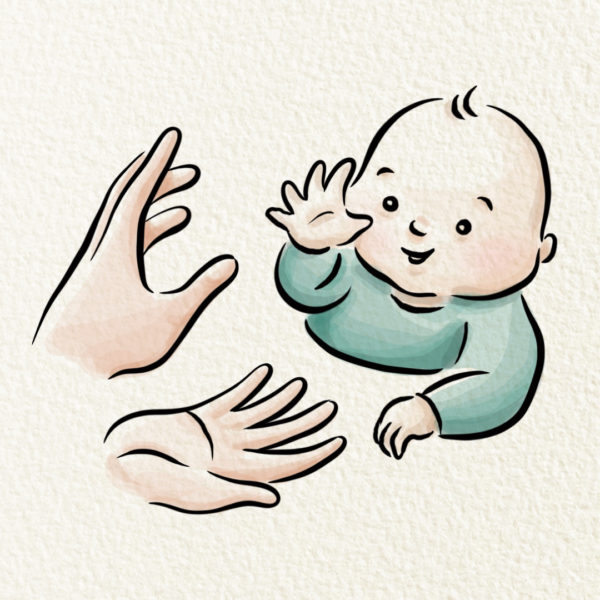Month 3: Encouraging your baby’s development
Baby monthly update

Everyone in the family is getting more acquainted with the baby and is enjoying the company of one another.
The baby’s alert time is longer as growth and development become more explicit.
How are you and your baby
You will notice that your baby’s eyes can now follow objects or move sideways. Your Child’s core muscles are becoming stronger, and your baby might be able to lift the head up when placed in a prone position. Your Child smiles more often as a response to pleasant sounds and familiar faces and may even attempt to imitate you by cooing.
You and everyone in the family may have gotten their grooves back. So, this can be the time to start thinking and researching new ways to support Your Child’s development.
What are developmental milestones
Early childhood is a particularly critical time for healthy growth and development. About 80% of your baby’s brain development occurs in the first 3 years of life. This is also true for other important skills — such as walking, socializing, making decisions, and learning — that form the foundations of how Your Child’s adulthood will unfold. The attainment of these key skills are called developmental milestones.
Milestones are often used as the standards to gauge a baby’s development — whether they are on par with other babies their age. Some international organizations, such as Denver 2, standardize these milestones to help specialists track a child’s development so as to identify potential developmental delays.
However, it is crucial to understand that children develop at their own pace; achieving certain milestones faster or slower does not predict your baby’s future achievements. There are, however, red flags of developmental delays that parents can look out for, namely:
- not responding to sounds or stimuli
- not following objects with their eyes
- having their eyes fixated in a vertical or horizontal gaze
- not making verbal sounds such as cooing
- Not grabbing or showing reflexes
How to encourage your baby’s development
Use daily routines as practice time: Children learn best through interactions and repetitions. So, daily routines such as bathing, changing diapers, and settling down for sleep the same time everyday offer the most practical ways to support developmental milestones. For example, singing during bath time gives audio stimulations and introduces your baby to language skills, which will be helpful once Your Child is ready to communicate verbally in a year’s time. Counting toes when changing diapers familiarizes Your Child with mathematical concepts, which is an important aspect of cognitive skills such as problem-solving. Similarly, soothing caresses during settling down teach your little one about trusting and attentive relationships that is a foundation for healthy socio-emotional development.
Play with your child often: By playing and interacting with Your Child — tummy time, shaking rattles, or reading and singing — your baby receives rich stimulations that encourage many aspects of development. For example, by shaking a rattle for Your Child, the little one learns about the concept of cause and effect in shaking the object and creating sounds. It also teaches your baby to pay attention to an action and strengthens their vision as they watch and follow your movements.
Why should you know your baby’s developmental milestones
Children’s growth and development are scaffolded — that is, their ability to learn new skills is based on their previous understanding and attainment of preceding developmental milestones. By constantly encouraging them and providing enough time to practice, your children will attain the various developmental milestones at the right time, and you will get to witness the wonders of human evolution in your baby’s journey.
Knowing the developmental milestones in each aspect of your baby’s growth, such as motor skills, communication, play, and social skills, enables you to provide the right support to your child at any point in time.
In addition, your knowledge of the developmental milestones helps you to identify signs that your baby may be ready for the next milestone — and hence give you a good idea of what the future may bring. And if a child shows signs of specific delay, you will be able to identify them and seek medical help in time.
Verified:
Dr. Ketsupa Jirakarn (Mental health specialist) (1 November 2023)



